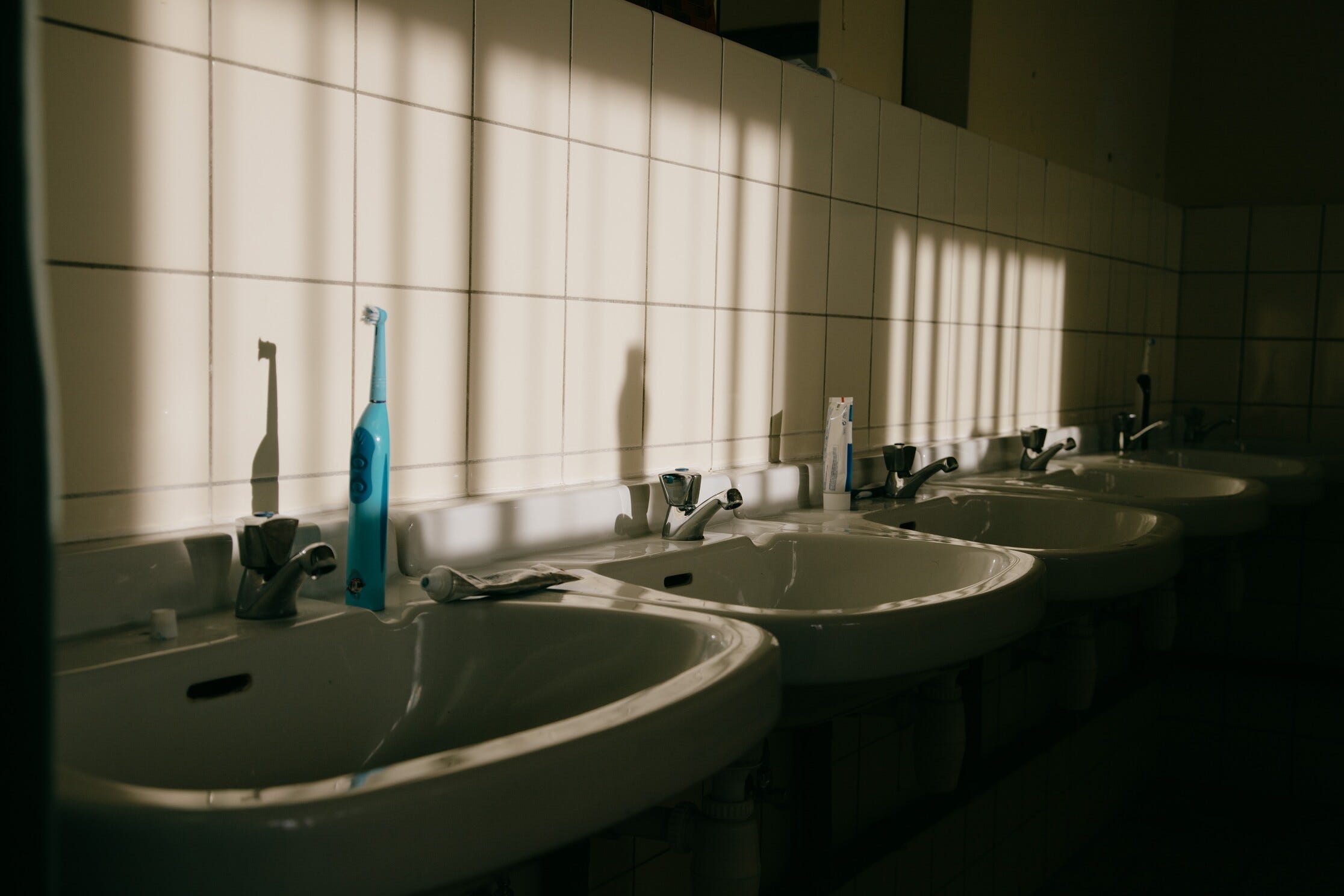Books v. Zomato. Books or Zomato?
Originally posted here on March 16, 2021

For the whole of 2017, I lived in my office, out of a suitcase, by my own choice. There are a whole set of challenges that come with a decision like that - food, laundry, bed, hygiene, etc. Here is how I solved those problems: food - Zomato/Swiggy; laundry - IIT Bombay hostel; bed - sleeping bag; hygiene - IITB hostel, friend's home, office restrooms. Saying that I solved the problem of hygiene would be a bit too much, let's say I managed it enough for people to be able to work with me, most of the time.

My reason - I thought it was more efficient. It truly was - my travel time to work was 5-10 seconds, no rent, no utilities, no home maintenance, no moral policing. You save the two most valuable resources for humans - time and money. Along with that, you get the freedom to spend your time and money whenever you want and however you want.
Watchmen - the first line of defence for a housing society's morality - are different in business parks. They don't judge you or report you to your landlords. They don't care, in a good way. I learned two things from this. First, watchmen are not the root cause of pain to the tenants. They are acting out of self-preservation by adhering to the norms of their employer. Second, the norms of morality and society in places of business are different from norms of morality and society in places of residence. These norms are redefined, and often relaxed, under the premise of ease of doing business.
How does one spend their spares - spare time, spare money and spare freedom?
At that time, I spent them on two things - ordering food on Zomato & partying. A hundred per cent of freedom was spent on partying and about seventy per cent of my spare money and time was spent on food. I saved nothing. It was either order in or dine out. I ordered food every day for more than a year. Barring the days on which someone got a homemade lunch for me, I was always in a paradox of choice of restaurants, thrice a day. It came to a point where I had to create a google sheet with my food and restaurant preferences to make the decision easier.
Books or Zomato?
At that time, I was not in a habit of reading books. I always wanted to read more but I didn't. One reason for it was that I did not buy a lot of books. I thought they were expensive. Once or twice a month, I would open Amazon to buy a book, look a the price tag of Rs 300 - 500, and then say - too expensive. Until one day I sat down and calculated the amount of money I was spending on food. The number baffled me. When I compared it to the cost of the books, that I deemed too expensive to buy, it baffled me even more. According to the calculation, if I spent 30 per cent less on my food, I could buy one book a day - not one book a month, or a week - one book a day. I could buy more books than I could ever finish reading in just a couple of years. Math that defies your own intuition is the most impactful. You can't forget it or hide from it. So, the math stuck with me - one book a day!
Zomato and Books.
Thereafter, every-time I started ordering, a question popped into my head - books or Zomato? It was hard to choose 'book' each time but I started choosing it a lot more. I was ordering more books than I have ever ordered. Books seemed cheap now. In a couple of months after that, I ordered at least 20 books. That changed everything. I haven't felt a deficiency in reading ever since. In the end, I had both - Zomato and Books.
I think people read more when they buy more books. But why don't people buy more books? One of the reasons is the perception that reading is an expensive habit - books are costly. For the people who aren't ordering food online, I agree. For others, I disagree and here is the math to prove it.
I have used Zomato's figures because they were readily available, however, I think that these numbers will hold true for other ordering platforms too.
On average, a Zomato user orders 3.6 times per month. Each time they order, they spend somewhere around 375 on it. So, on average, a Zomato user spends 1350 on Zomato per month. If you place more than 3.6 orders per month, you spend more - order once a week and the number become 1500 per month.
Now, if you choose to spend 300-500 less on Zomato per month, you could buy one book a month for the rest of your lives. In 5 years, you would have 50 books - way more than what an average person reads in their lifetime. There are many ways in which you can achieve this - reducing order frequency by one, choosing cheaper places, getting better discounts, using multiple applications, etc. The point is this - it is very very easy to do and you should do it. You should buy more books.
You just have to ask yourself a question - Books or Zomato, and you will end up with both Zomato and Books.